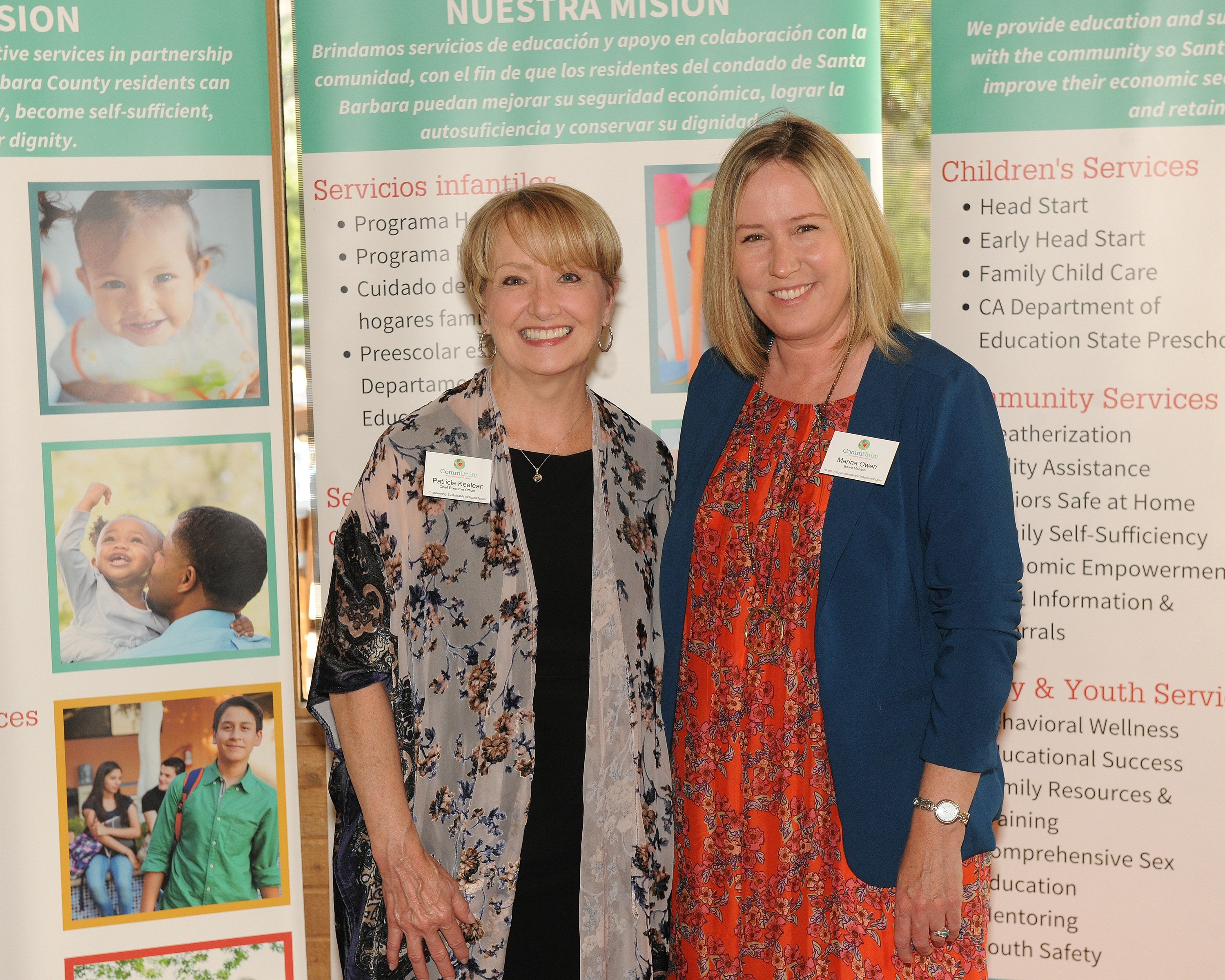This article is a joint reporting venture by Edhat and the Santa Barbara Independent and is the first in an ongoing series of stories on maternal health in Santa Barbara.
Dr. Melissa Drake, a highly sought after Santa Barbara OB-GYN known for her progressive approach to women’s healthcare, announced she is closing her practice at the end of the month. Drake cited personal medical issues and a desire to spend more time with her family as the reasons for decision, which came as a surprise to her many patients and created a sudden influx of demand on Santa Barbara’s remaining obstetricians.
“It has been the honor of my life to work with the women of Santa Barbara,” Drake said in her May 13 announcement on Instagram that explained her office would stop accepting CenCal insurance on June 15 before closing on June 30. “Thank you for allowing me to be part of the most personal, profound, and important days of your lives,” she said.
A native of Tucson, Drake received her medical degree from the University of Arizona College of Medicine and completed her residency at George Washington University in Washington, DC. She opened her Santa Barbara practice in 2017 and quickly gained a local following that only grew after she delivered Meghan Markle’s daughter at Cottage Hospital last summer. Though her unabashedly patient-first attitude toward medicine endeared her to hundreds of women, it also created professional tensions with some members of Santa Barbara’s medical community, particularly around the issue of VBACs (vaginal birth after cesarean-section) and collaboration with midwives.
Sansum Clinic Medical Director Dr. Marjorie Newman said the news of Drake’s impending departure has prompted a coordinated effort “where all local obstetricians are working together to address this unforeseen challenge.” Sansum, which employs six delivering OB-GYNs on the South Coast, is “working diligently to accommodate as many patients as we can, especially those who are due to deliver within the next few months,” Newman said. Doctors have extended their hours, nurse practitioners and physician assistants from other departments have rescheduled some of their regular appointments to well-woman visits, and the clinic is actively recruiting more OBs. One is expected to start in August.
When reached by phone this Thursday, a Sansum receptionist said patients calling for an appointment are being added to a waitlist, whether they are already established with a Sansum doctor or transferring from Dr. Drake’s office. It could be “a few weeks” before they are called back, the receptionist said. Additionally, patients are currently unable to choose their doctor and will be connected with the first available physician.
The only private OB-GYN delivering in Santa Barbara, Dr. Pedram Rashti, is currently accepting pregnant patients, though Rashti’s office said they don’t have room for any women due in the next three months. After that, they had only one delivery date available for September and four for October. Attempts to speak to Rashti directly were unsuccessful.
A call to Dr. Susan Ramos’s office revealed Ramos is not accepting pregnant patients and it’s unclear when, or if, she will in the future. Dr. Margaret Echt is no longer practicing obstetrics and is offering a concierge service for gynecological needs. [Note: The previous sentence has been updated. It originally stated: “Dr. Margaret Echt is also no longer taking new patients and is instead offering cash-only services for gynecological needs.”]
The Santa Barbara Healthcare Center, as part of the county’s Public Health Department, does have appointment availability but is only open to people with Medi-Cal or without insurance. Many women are now looking south for help. A receptionist at the Ventura County Obstetric + Gynecologic Medical Group confirmed they had been receiving numerous calls and transfers from the Santa Barbara area.
In addition to touching off a local scramble for replacement care, Drake’s announcement underscores an issue affecting communities across the United States ― a growing shortage of OB-GYNs. According to a 2021 study by the U.S. Department of Health and Human Services, the number of OB-GYNs is expected to decrease from 50,850 to 47,490 (7%) over the next eight years, while demand is projected to increase from 50,850 to 52,660 (4%). In 2018, California was operating with a deficit of 230 full-time OB-GYNs; it’s projected the deficit will grow to 1,160 by 2030.
Burnout is a major factor. A 2017 report by the American College of Obstetricians and Gynecologists (ACOG) states an estimated 40–75 percent of OB-GYNs experience some form of professional burnout “(e.g., losing control, conflicting demands on time, or diminishing sense of worth)” in their careers.
Layered upon the scheduling dilemmas in Santa Barbara is a palpable sense of mourning among past patients of Dr. Drake as well as hopeful mothers. “My friend group is pretty devastated to lose Dr. Drake as a practitioner in town,” said Jorden Hirsch, who said she knows at least 10 women who are now looking for new OBs. “It’s a real loss for the community.” Katherine Mueller said Drake possessed that rare dual-quality in doctors of top-level expertise paired with a compassionate bedside manner. “She always made her patients feel comfortable, in control, and always gave them the right to say no,” Mueller said.
Kay de Veer Ulanch, whose twin boys were delivered by Drake, used a word that’s frequently cited by her fans ― “unicorn.” “She puts you in charge,” Ulanch explained. “You lead your birth experience. That’s a big deal, and it’s not common.” Ulanch described the closure of Drake’s practice as a “travesty” for Santa Barbara. “I know that sounds dramatic,” she said, “but she’s done so much good to so many families. When you’re having a child, you want the best, and she’s the best.” Like others, Ulanch wonders if Drake’s decision to shut down was prompted by more than just personal reasons. “I hope we figure out what’s going on,” Ulanch said, “and I hope she comes back.”
Anastasia Stone, a doula who worked often with Drake, said she thinks Santa Barbara’s medical establishment felt threatened by Drake, isolating her and ultimately overburdening her. “What I see is a doctor who practiced a more midwifery-focused philosophy of care, where there’s informed consent and a focus on emotional outcomes,” Stone said, explaining she is personally aware of other OB-GYNs performing procedures and administering medications without a patient’s permission.
“So you have this stark contrast in the way care is being provided, and it puts pressure on other doctors to change how they’re practicing,” Stone went on. That dynamic bred resentment, she claimed, and led to Drake being ostracized by many of her colleagues. A Santa Barbara nurse, who wished to remain anonymous, agreed with Stone’s assessment. “Maternal healthcare in S.B. is extremely lacking,” the nurse said. “This is much of the reason so many people flooded to Dr. Drake. She gave the personalized, evidence-based care that is not present with many of the other practitioners in town.”
Drake herself declined to expand on her reasons for closing or address rumors of an eventual return, but she did offer more insight into her philosophies on maternal health and the time-consuming nature of her approach. “One of my most important guiding principles is patient autonomy and giving power back to women,” she said in a statement provided Tuesday. “OB/GYN care represents an inflection point in peoples’ lives. People who feel disempowered and disrespected during their birth experience carry that with them forever. It impacts not only the way they feel as parents, but also impacts their future interactions with healthcare.”
Women are socialized to avoid conflict, Drake went on, which can spill over into the doctor-patient relationship. “Ask any woman about their medical experience, and you will hear a lot about soft pressure,” she said. “I try to let patients know that even if they are making a decision that I don’t agree with, I will try to support them as best I can, within my ability to do so.”
Why is that such a rare thing? Drake asked. Why do people call her a unicorn? “Because it is very labor intensive,” she said, further explaining that it takes time to have these conversations. “The healthcare system is not set up to reimburse providers for this kind of work… But we deserve this kind of care. We all do.”
__________________________________________________________________
Health Minded Community News - - -

COMMUNITY 2022 CHAMPION’S DINNER AWARD RECAP

CommUnify CEO Pat Keelean photographed with CenCal Health CEO, and CommUnify Board Chair, Marina Owen at the 55th Anniversary Champions Dinner.
After a two-year hiatus due to the pandemic, CommUnify (formerly known as Community Action Commission, or CAC) held the highly anticipated Champions Dinner & Awards on Thursday, June 9 at The River Grill, at Alisal Ranch in Solvang.
The sold-out event hosted 182 guests including many community leaders, business owners, and nonprofit directors. Geoff Green, Executive Director of the Santa Barbara City College Foundation served as the night’s humorous and lively Master of Ceremonies, and the high-energy auction was led by Jim Glines and his bid-spotting team, backed up by staff from the Community Bank of Santa Maria.
The Champions Dinner was supported by thirty-six corporate and hospitality sponsors from across Santa Barbara County and raised $171, 787.69 to increase the funding for nine programs in CommUnify’s Family & Youth Services division.
“We are so grateful for the generosity and continued support from our community,” said CommUnify CEO, Patricia Keelean. “These greatly needed funds will help CommUnify to expand our programs to serve the youth of Santa Barbara County and provide them with additional support services including case management, behavioral health, life skills, and educational activities, helping these vulnerable adolescents to find a path to success and a brighter and more stable future.”
As the event’s lead sponsor, CenCal Health will provide an additional $100,000 in grant funds as their matching challenge was met. The 2022 Champions honored during the evening were the Santa Barbara Foundation, Robert Freeman, former CEO of CenCal Health and CommUnify’s Board President for eight years, and Eric and Kelly Onnen, longtime community volunteers and co-owners of Santa Barbara Airbus. The dinner also recognized our 2020 Champions, The Towbes Group, Rona Barrett, and Jim Glines. For a complete description of CommUnify’s programs and services please visit www.CommUnifySB.org.
About CommUnify: CommUnify (formerly the Community Action Commission or CAC) was formed in 1965 as a 15-member Community Action Committee appointed by the County Board of Supervisors to address the causes and conditions of poverty within the entirety of Santa Barbara County. The organization is committed to taking a leadership position in alleviating poverty and surrounding residents with the stability they need to build stronger lives and become healthy, educated, working, self-sufficient members of our community.
As one of the largest nonprofits in Santa Barbara County CommUnify employs over 300 staff including health, education, and social service workers who oversee 17 countywide programs and services for the community. We support families and individuals through health and human service programs, including 24 Head Start and Early Head Start locations, Weatherization and Energy Assistance, Family & Youth Services, Senior Services, and the 2-1-1 HelpLine and serve more than 12,000 people throughout the county each year. CommUnify is a private non-profit agency that leverages support for Santa Barbara County residents through private funding as well as government contracts and grants.
More information is available at: www.CommUnifySB.org.
____________________________________________________________________





